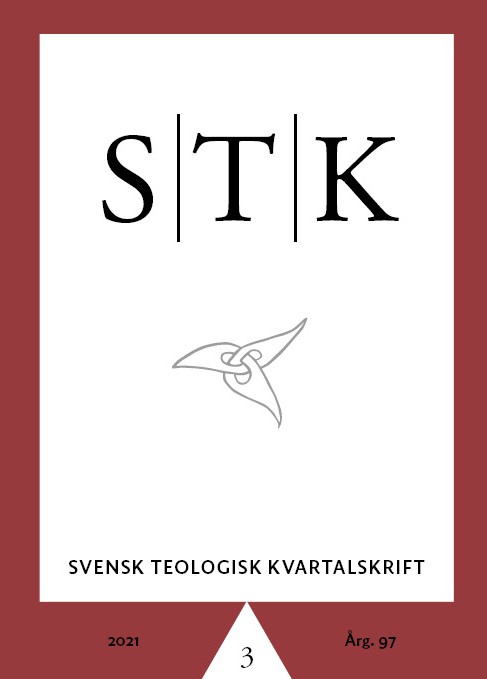Mellan mission och sionism
Svenska Israelsmissionen och grundandet av Svenska teologiska institutet i Jerusalem
DOI:
https://doi.org/10.51619/stk.v97i3.23460Abstract
This article discusses the establishment of the Swedish Theological Institute in Jerusalem in 1951. My claim is that the missionary plan of the Swedish Mission to the Jews was mitigated towards a programme of biblical studies. Several factors contributed to this transformation. The change facilitated the relations with the Israeli authorities. Another challenge was to overcome the common Christian negative comprehension of Zionism as a mere materialistic, political enterprise. Such attitudes complicated a connection to political Zionism, however the Swedish Theological Institute related rather to the cultural Zionist agenda of promoting Jewish culture and the Bible and could later connect to the topic of the Bible and the land. The experiences of the Swedish Mission in Vienna during the Second World War and their anti-Nazi stance also enabled the founding of the institute. Two former missionaries, Greta Andrén and Hans Kosmala, were appointed as heads of the institute. Andrén had previously experienced that missionary work in Jerusalem was considered as utterly suspicious. Thereto both the Anglican and the Swedish missionaries had under ambivalent presuppositions supported an evacuation of baptized Jews, so-called "Hebrew Christians", from Palestine to England in April and May 1948. This enterprise, named "Operation Mercy", was later proved to be primarily an excuse for these Hebrew Christians to leave the country. The links to any overt missionary work was thus disengaged when negotiating permits for the Swedish Theological Institute. Instead, a qualified study programme in the Bible, the land, and Judaism was initiated; concepts that reflected esteemed values of the new Israeli state.
Downloads
Publicerad
Nummer
Sektion
Licens
Copyright (c) 2021 Håkan Bengtsson

Detta verk är licensierat under en Creative Commons Erkännande-Ickekommersiell-IngaBearbetningar 4.0 Internationell-licens.


